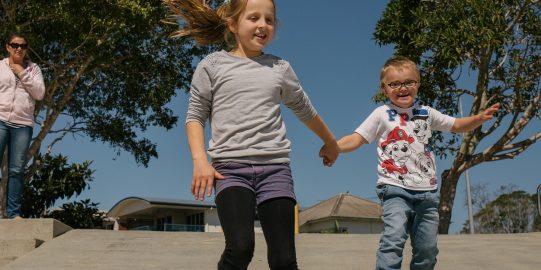Privacy matters
Some AAC experts have also highlighted privacy confidentiality and informed consent issues that can arise in AAC use. Carole Zangari emphasizes that data logging can be very invasive as it can give professionals access to conversations that are private.
We believe that AAC users have an absolute right to privacy regarding what they say, when they say it, and to whom they say it. Consent relies on understanding the implications of data collection. It also requires limiting access to sensitive data through policies and access restrictions. None of this is abuse proof. The only way to truly protect the privacy of AAC users is to not collect sensitive data at all. That way, parents or educators can only police language in the same way they do for speaking children. It also makes it impossible to violate the privacy of conversation.
Data collection matters
Some experts argue that language sample collection is essential for AAC evidence-based practice. A strong proponent of this perspective is the AAC Institute. They argue, “People who use AAC have the right to the highest performance communication possible. Optimized communication performance cannot be assured without the collection and analysis of language samples.” The AAC Institute further states that language sample collection is necessary to comply with ASHA (American Speech-Language-Hearing Association) standards.
This perspective led to the development of Language Activity Monitoring (LAM). Katya Hill and Barry Romich describe it as a way to automatically record the content and time of language generated using AAC systems. Every word, letter, and sentence spoken is captured with a timestamp in a log file.
At present, LAM or similar automated data logging (ADL) can be turned on in many AAC apps and devices. AssistiveWare does not include LAM or similar logging in any of our products.
We do understand the value of analyzing language use to help AAC users improve their communication. But, we believe that this should be done without invading the user’s privacy. Informed consent, even from the AAC user, is not good enough.
We don't log what an AAC user says, but we still collect some data. We are a company with a social mission. We do not measure our success by the number of apps we sell or our App Store ratings. We want to measure our success by the communication our users achieve. Therefore we need to find ways to measure communication success and communication growth. We also need to measure the factors that affect communication success. We do this to continuously improve our products as we learn more. We can also use it to guide and inform AAC users and their communication partners.
Advocacy is also an important reason for us to collect data. Being able to support our observations with hard data makes a big difference. For example, data shows that the number of AAC devices used is much higher on weekdays than on weekends. This kind of data helps us advocate for more AAC use at home.
AssistiveWare’s AAC data collection principles
- Only collect data if there is a clear purpose. We never collect data just because we can. For example, if we build a new feature, we want to see if it is discovered and used. If the feature is not discovered, we need to improve our communication. If it is not used regularly, we should not build it into another product. In that case, we do more research (by speaking to users) to learn why it is not used and then improve the feature.
- Ask for permission to collect data for product improvement. We capture very basic anonymous data for operational purposes (see our privacy policy). In Proloquo2Go and Proloquo4Text we additionally collect more detailed anonymous information (see our AAC data collection overview). There we explicitly ask for consent, which the user can change at any time.
- Only collect anonymous data. We do not need to know who is who to use data to improve our products. We do not include personal information such as a user name or email address with the data we collect.
- Do not collect more details than necessary. We are investigating how to measure communication growth best. This does not require hourly or daily data. Instead, we focus on weekly data. There is also no need for us to know exactly which words are spoken. So we collect anonymous data on the number of words and the number of unique words spoken in a week. We perform all the processing inside the app and only collect the resulting totals.
- Do not collect sensitive personal data. A user might use names, addresses, or refer to email addresses. This information could expose their identity. Because of this, we would never want to capture a log of exact words a user has said.
- Do not share raw data with third parties. To use data for advocacy or to advance the AAC field, we may publish summary data. Summary data cannot be traced back to individuals. Examples of summary data are the number of inhabitants of a country or the percentage of AAC users active on the weekend. We do not sell data or share raw data with third parties.
If you want more specific information on the data we collect in our AAC apps take a look at our AAC data collection overview.
A plea for more privacy
I would argue that we can follow the principles above yet still get relevant insights for product improvement. But how about insights to help therapists support AAC users?
We currently do not provide access to data in our products. Recents in Proloquo2Go and History in Proloquo4Text were not designed for data collection. They were designed to allow AAC users to quickly repeat something or add it to their vocabulary. The data is not time-stamped but organized by recency. It cannot be exported, and it can be cleared at any time.
We do not want to provide data to parents or professionals until we find a way that aligns with the principles above. We want to go beyond respecting AAC user privacy. Data should be (1) easy to understand; (2) actionable; (3) guide people to best practice. Below are some of the ideas we are exploring:
For example, communication growth can be measured without time-stamped logs of a user’s communication. A product could provide totals for the number of nouns, verbs, and adjectives spoken in a month. Comparing this between months or year over year should show progress. Yet, it would not expose any of the specific words spoken or the specific time those words were spoken. It would allow therapists to spot imbalances in the use of language. They can then suggest to the parents or teacher to model different types of words.
Another example, a family wants to know if an AAC user is communicating more at home or at school. They do not need to know which words or how many words were spoken on a specific day. It would be enough to compare totals for weekdays with weekend days.
I encourage developers and clinicians to reconsider the use of data logging. Think about the concerns expressed by AAC users. Consider some of the principles and ideas discussed above. Involve AAC users.
Using data to help AAC users improve their communication or developers improve their products is legitimate. Yet, this should never lead to automatic data logging of everything an AAC user says. Instead, developers should find creative ways to gather relevant insights without invading the AAC user’s privacy. Would we ever allow someone to record everything we say during a day? I’d think not!
Acknowledgment: I want to thank AAC users Alyssa Hillary, Darla Burrow, and Tim Jin, who reviewed this blog post and whose feedback helped me improve it greatly.
David Niemeijer
Founder & CEO, AssistiveWare




